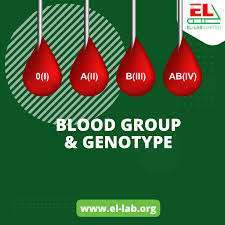Difference Between Blood Groups and Genotypes
- Blood Groups:
Blood groups describe the type of blood you have, determined by the ABO system (A, B, AB, or O) and the Rhesus (Rh) factor (positive or negative).
It’s important for safe blood transfusions and pregnancy to avoid complications like Rh incompatibility.
- Genotypes:
A genotype is your genetic makeup, especially related to hemoglobin, such as AA, AS, or SS.
It helps determine if you are a carrier of sickle cell (AS) or if you have sickle cell disease (SS).
Why It Matters When Choosing Who to Marry
Blood Group Compatibility:
If a woman with Rh-negative blood marries a man with Rh-positive blood, their baby could inherit Rh-positive blood, leading to complications during pregnancy. This can be managed with medical care, like an injection of Rh immunoglobulin.
Genotype Compatibility:
If both partners have AS, there’s a 25% chance their child will inherit SS, which causes sickle cell disease—a painful and lifelong condition.
To avoid this, people are often advised to check their genotypes and avoid marrying someone with an incompatible genotype. For example:
AA + AA = Safe
AA + AS = Safe
AS + AS = Risky (25% chance of SS)
AS + SS or SS + SS = High Risk
Summary
While blood groups matter for medical safety, genotypes are critical for ensuring healthy children. Both should be checked before marriage to prevent avoidable health issues for your future family.











wow i never knew